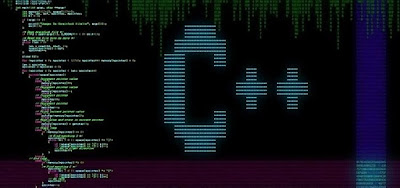Getting Starting With C++
OVERVIEW
ABOUT C++
○ C++ is a programming language
○ C++ is a middle-level programming language
○ Developed by Bjarne Stroustrup starting in 1979 at Bell Labs
○ C and C++ became a widely used programming language
○ C++ fully supports object-oriented programming (OOP's).
○ OOP's is a model of programming language or It is a Concept.
FEATURE OF C++
○ C++ is Easy to learn and Understand.
○ C++ is usually considered a "multi-paradigm" language.
○ It produces more efficient programs.
○ It can also handle low-level activities as well as high level activities
○ It can be compiled on a variety of computer platforms.
○ C++ is an object oriented programming language therefore it supports:
1. Polymorphism (one name and many forms)
2. Encapsulation (wrapping of a data & function in single unit)
3. Data Abstraction ( hiding of data and showing important features)
4. Inheritance (deriving data from one class to another)
5. Data Banding (communication between objects)
○ C++ is not portable. (means source code runs anywhere but .exe file does not run )
USES OF C++
○ C++ is used by thousands of programmers to develop an application .
○ C++ is used to write device drivers and other software's
○ C++ is widely used for research
○ The primary user interfaces of systems are written in C++ (especially for windows and mac).
FOR MORE INFORMATION click here...
TERMS THAT YOU OFTEN USE
Tokens – It is the smallest and individual part in a program.
There are five types of token…
1- Keyword
2- Identifiers
3- Constant/Literals
4- Separators/Punctuators
5- Operators
Keyword are the reserved words which has specific meaning to the compiler. Keyword cannot be used as an identifier.
Eg- if,int,while,for,char…..etc.
Identifiers are the name given to the different parts of the program and these are user defined.
Viz- variables , object ,class , functions , array, structures ….etc.
Eg-num,sum,total,max,cube,student …etc.
Constant / Literals are the entities whose value is fixed or remain constant. It does not change during program run or execution.
There are four types of constant
1- Integer constant
2- Floating point constant
3- Character constant
4- Strings constant
Separators/Punctuators are the symbols (special characters) which is used to separate party of the statement.
1- Keyword
2- Identifiers
3- Constant/Literals
4- Separators/Punctuators
5- Operators
Keyword are the reserved words which has specific meaning to the compiler. Keyword cannot be used as an identifier.
Eg- if,int,while,for,char…..etc.
Identifiers are the name given to the different parts of the program and these are user defined.
Viz- variables , object ,class , functions , array, structures ….etc.
Eg-num,sum,total,max,cube,student …etc.
Constant / Literals are the entities whose value is fixed or remain constant. It does not change during program run or execution.
There are four types of constant
1- Integer constant
2- Floating point constant
3- Character constant
4- Strings constant
Separators/Punctuators are the symbols (special characters) which is used to separate party of the statement.
[ ] - Square brackets
( ) - Parentheses
{ } - Curly braces
; - Semicolon ..... etc.
Operators are the symbols which performs some operation on operands.
Types of Operator:
a) On the basis of number of operands
1- Unary operator
2- Binary operator
3- Ternary operator
b) On the basis of type of operation performed
1- Arithmetic operator
2- Logical operator
3- Relational operator
4- Bitwise operator
5- Assignment operator
6- Increment and Decrement operator
7- Shorthand operator
8- Conditional operator
Comments -
-These are the remarks about the program or parts of a program.
-These are un-executable statements.
-These are very helpful to understanding the program.
Types of Comment
1- Single line comment
2- Multiple line comment
eg- // this is a single line comment
/* THIS is a
multiline comments ..
it is continues more then 2 lines */





Comments
Post a Comment